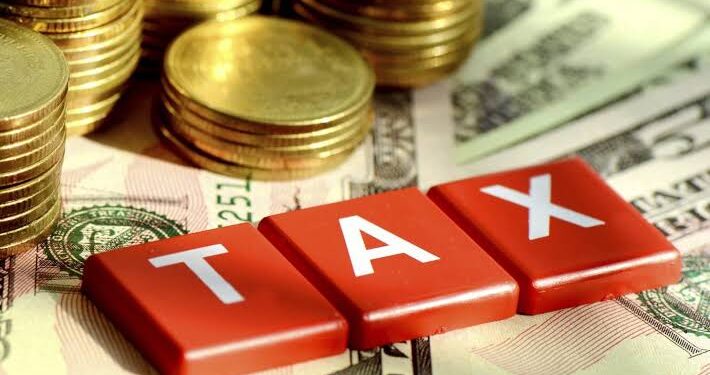Nigeria, Africa’s largest economy and most populous nation, is once again at a crossroads. This time, it’s not oil prices or political rivalries making headlines but a sweeping tax reform that has ignited heated debates across the country. Introduced to bolster revenue amid dwindling oil earnings and mounting debt, the reform promises to reshape Nigeria’s fiscal landscape. However, its rollout has faced resistance, particularly from governors and lawmakers who fear its potential economic repercussions of the bill.
The Tax Reform: What It Entails
The Nigeria Tax Bill (NTB) seeks to simplify the country’s tax structure by consolidating multiple tax laws into a unified framework. It proposes the repeal of 11 existing laws, amendments to 13 others, and the creation of new provisions to streamline tax administration. Key highlights include:
1. Personal Income Tax (PIT): Progressive reductions in PIT rates, with lower-income earners earning less than ₦800,000 annually exempted from tax.
2. Corporate Tax: Exemption of small businesses with an annual turnover below N25 million and a reduction of top profit tax rates for larger companies from 30% to 25%.
3. Value Added Tax (VAT): Gradual increase from 7.5% to 15% by 2030, with exemptions for basic goods used by low-income groups. Allocates 60% of VAT revenue based on derivation, shifting the focus to the place of consumption rather than company headquarters’ remittance locations.
4. Targeted Exemptions:
Excludes certain compensation, personal property sales, and injury-related settlements from capital gains tax.
The Contested bill also introduces three supplementary bills to oversee tax administration, revenue derivation, and dispute resolution: the Nigeria Tax Administration Bill, the Nigeria Revenue Service Establishment Bill, and the Joint Revenue Board Establishment Bill.
Why Is the Bill Greatly Contested?
Northern governors have strongly opposed the Nigeria Tax Bill, arguing that its socioeconomic implications do not favor their region. They claim the bill could exacerbate economic disparities between economically buoyant states like Lagos and Rivers and struggling northern states, plunging the latter into deeper economic regression.
A key point of contention is the new derivation formula for Value Added Tax (VAT). Many governors believe the formula disproportionately favors wealthier states and will significantly reduce revenue for states with lower economic activities. They argue that this reduction in funds could leave many states unable to meet their financial obligations.
Governor Babagana Zulum of Borno State has been one of the most vocal critics of the bill. He asserts that the reform would benefit only a few states while adversely impacting the majority, especially in the north. Zulum also raised concerns about the rapid passage of the bill, suggesting it might indicate irregularities. He has called for more extensive consultations and a thorough review to ensure the bill’s provisions do not further marginalize northern states.
What Does the Bill Really Entail?
A closer examination of the Nigeria Tax Bill (NTB) reveals some provisions that validate concerns about its potential impact on state revenues. State revenue traditionally relies heavily on personal income tax (PIT) and federal derivations from other taxes. However, the NTB’s streamlining of PIT, including significant exemptions for lower-income earners, is expected to reduce state revenues.
Under the new bill, PIT rates are adjusted as follows:
- First N800,000 – 0%
- Next N2.2 million – 15%
- Next N9 million – 18%
- Next N13 million – 21%
- Next N25 million – 23%
- Above N50 million – 25%
In comparison, the current PIT rates are:
- First N300,000 – 7%
- Next N300,000 – 11%
- Next N500,000 – 15%
- Next N500,000 – 19%
- Next N1.6 million – 21%
- Above N3.2 million – 24%
The proposed rates exempt individuals earning N800,000 or less annually from PIT, a significant shift from the current threshold of N300,000. For instance, a low-income earner making N25,000 monthly (N300,000 annually) currently pays 7% in income tax. Under the new bill, this individual would pay nothing. Given that over 70% of Nigerians earn less than N800,000 annually, the bill is undeniably pro-poor. However, this also means states with predominantly low-income populations, such as many in the north, could face challenges in generating sufficient internal revenue.
The VAT Derivation Formula Controversy
One of the most debated aspects of the NTB is the proposed derivation formula for Value Added Tax (VAT). Section 77 of the Nigeria Tax Administration Bill stipulates that 60% of VAT revenue allocated to states and local governments will be distributed based on derivation. However, Section 22(12) introduces a key shift: VAT will now be attributed to the place of supply and consumption rather than the location of company headquarters, which the current system favors.
This change aims to align VAT revenue distribution with actual economic activity but has sparked resistance. Opponents argue that states with lower consumption levels or fewer businesses will lose out, while states like Lagos and Rivers, with high consumption and economic activity, stand to gain significantly.

Implications of the New Bill
The NTB presents a mixed bag of benefits and challenges. On one hand, it offers significant relief to taxpayers, particularly low-income earners, and aligns VAT distribution with consumption patterns, promoting fairness. On the other hand, it could strain the financial capacity of states with predominantly low-income populations or limited economic activity.
Conclusion
Nigeria’s government has seldom been this divided over an economic reform, reflecting the significant impact such fiscal changes could have on the economic capacity of states. While the bill presents a promising outlook for taxpayers, its potential to deepen disparities among states is a valid concern, particularly for less economically buoyant regions. With the advantages and challenges of the bill now evident, the pressing question is: who will the presidency prioritize—the states or the people?


















